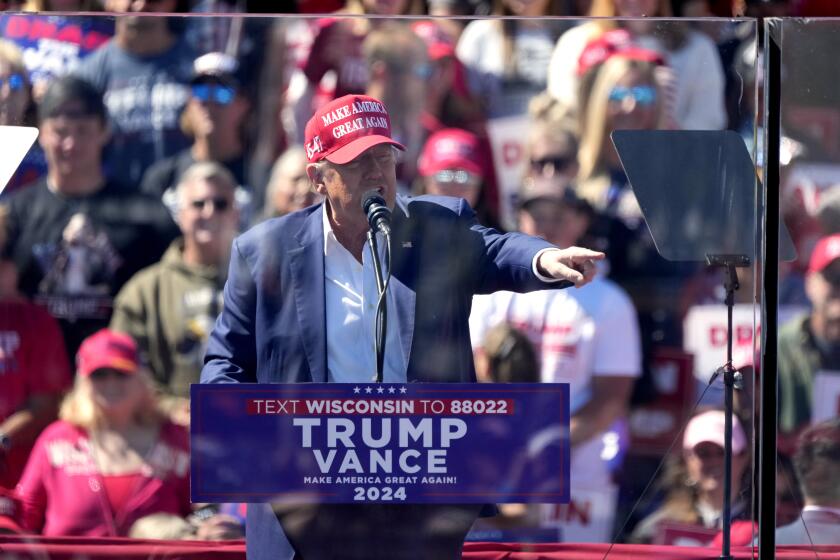Colombia militias call off disarmament pact
Militia leaders told Colombia’s top peace negotiator Wednesday that they were backing out of an agreement under which thousands of right-wing paramilitary soldiers have laid down their weapons, throwing the future of the three-year process into question.
The declaration, confirmed by a spokesman for President Alvaro Uribe and an associate of Peace Commissioner Luis Carlos Restrepo, came during a meeting of 59 paramilitary leaders with Restrepo at the Itagui maximum-security prison near Medellin.
Interior Minister Carlos Holguin told reporters that the leaders had been moved to the prison Friday from La Ceja, a resort turned prison farm, after reports surfaced of a possible jailbreak.
The paramilitary leaders were known to have been enraged by the transfer. At La Ceja, they had been given farm labor jobs and were allowed frequent visitors and access to cellphones.
“We directly notified the peace commissioner that this process is considered over,” Ernesto Baez, one of the 59 detained leaders who sometimes acts as a spokesman for the group, told Caracol Radio.
It was unclear whether the leaders might instruct some of the 31,000 disarmed fighters to take up weapons again.
If the militia leaders renege on the peace deal, it will be a severe blow to Uribe’s plan to settle this country’s 40-year civil war. The paramilitaries were formed as a defense against leftist guerrillas of the Revolutionary Armed Forces of Colombia and other groups. But they are alleged to have killed many leftist sympathizers, human rights activists and government officials in addition to guerrillas.
Uribe hoped to neutralize the paramilitaries first, and then make peace with or militarily defeat the rebels.
Rightist militia members began laying down their arms in July 2003, when Uribe’s government and leaders of dozens of the groups agreed to peace terms.
The leaders agreed to make full confessions, give up all illegally obtained assets and halt military operations.
Two dozen of the militia leaders are wanted in the United States on charges of drug trafficking or organized crime. The leaders also agreed to face criminal trials in Colombia in exchange for light sentences and a promise from the Uribe government that they would not be extradited if they held to terms of the deal.
But pressure has been mounting on Uribe to take a harder line. Allegations have surfaced that the leaders have engaged in criminal operations since disarming and that at least four Colombia congressmen and a former governor had ties to illegal paramilitary groups.
The transfer to Itagui prison came a day after Uribe threatened to extradite those proved to have continued illicit activity after signing the peace deal.
Uribe has extradited more than 400 paramilitary and drug trafficking suspects to the U.S. since 2002, but many are relatively small players.
*
Special correspondent Jenny Carolina Gonzalez contributed to this report.
More to Read
Sign up for Essential California
The most important California stories and recommendations in your inbox every morning.
You may occasionally receive promotional content from the Los Angeles Times.










